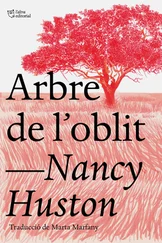Slow down the flashing. Halt in the year 2005.
A SCENE WITH Milo and Paul in the shower together (sorry, I can’t resist doing this just once). Paul, having been wined and dined at a dozen film festivals in the past year, may perhaps have acquired a tiny bit of a potbelly, but we don’t need to insist on that. After three decades of loving, their bodies are still in full trust and lust. They soap each other’s cock and crack, kiss beneath the hot sprinkle, mix saliva and water on their lips and tongues, turn to massage each other’s shoulders and lower back.
“Been too long since we worked together, baby,” murmurs Paul.
As they fuck, the camera will take an acute interest in patterns of steam and droplets on the shower stall’s glass wall.
“I got an idea,” says Milo a few moments later, turning off the taps. “We should do a film about capoeira in de favelas. Eugénio could star in it; he’s almost fifteen now, you know. De kid’s incredible.”
“Nah. . Capoeira’s everywhere these days. Video games, cartoons, you name it. Even Catwoman does capoeira, for Christ’s sake! You know? I mean, it’s a complete cliché.”
The two men towel each other down in the spacious marble bathroom of Paul’s hotel suite. (We don’t need to know what city the hotel is in. Could be Miami, L.A. .)
“No, not dat,” says Milo. “A political document, you know? Capoeiristas used to be black kids who picked fights. It was always about delinquency and disorder, rebellion and resistance. De film could start out wit de black slaves in Brazil, how dey revived de music from all over de African continent and mixed it up wit Indian rhydms. For dem de dance was a weapon , man, for dem it was a language. Dose slaveowners scattered families and mixed different tribes togeder to keep people from talkin’ to each oder, but deir bodies still could talk. Deir bodies still could understand each oder.”
“Like ours.”
“Eugénio could be de young hero. He’s taller dan me now! You wouldn’t recognize him, man!”
“Actually, Milo, it’s not unusual for children to grow between the ages of four and fourteen. And, uh. . I hate to point out the obvious, but height is not my sole criterion for hiring actors.”
“Okay, I know you tink I’m biased cause I’m his godfader. . but come see for yourself, it’ll take you tree seconds to see I’m right. He’s got his green belt already, he’s a phenomenon! I swear he could do it. If you’re not sure, do a screen test. We’d write de script togeder. Tree monts workin’ on location in Rio. Hey, man, it’d be a ball.”
“Three months? Sure, I think I can easily fit that into the spring of. . say, 2020.”
Having donned identical beige bathrobes, the two men are now seated at a low glass table in the suite’s drawing room, sipping Irish whisky neat.
“Do a screen test,” Milo insists. “You can find time for dat, can’t you, you stingy Jew?”
I shouldn’t have laughed, shouldn’t have listened to you, should never have gone back to Rio with you, Astuto. Big mistake.
CUT to the practice room at Copa’s Olympico Club. We’ll set up the camera in the same corner as the musicians. Toque is established. Roda forms. Gingas get going. Under the direction of their mestre , dark-skinned teenagers in white pants go through a formal series of kicks, twists, leaps and swivels, jiving constantly to the rhythm, constantly to the song, their left arms regularly moving up to protect their faces. Eugénio stands out among them; so swift and supple that he seems weightless. Paul and Milo watch from the far end of the room, Milo taking notes, Paul doing nothing, stunned by the kid’s grace.
CUT to early the next morning: Eugénio performing alone on the beach at Copacabana, Paul recording his spectacular whirls and leaps and somersaults in the air. (I like the fact that we’re ending the film as we began it — with a man cutting capers at water’s edge.) Close-up on Milo’s face as he plays atabaque to accompany his son. For the first time since he was a baby in the hospital half a century ago, his eyes are moist with tears.
A studio in Gloria. Paul simultaneously shooting Eugénio and giving him instructions that Milo, when necessary, translates into Portuguese: Terrific. . Could you just, like, walk across the room? Good, great. . Now, turn around. . Smile at someone beyond my left shoulder. . Yes. Terrific smile, thank you. . Now if I give you something to read for a sound test — anything at all, here, take this newspaper — would you mind reading me the beginning of an article, any article? Do you understand? Can you ask him to read something for us, Milo?
Eugénio kept glancing over at you uncertainly, and because you kept warmly nodding your encouragement, he continued to obey me despite his growing discomfort. I was uncomfortable, too. I don’t know why I didn’t listen to my instinct and put an end to the situation as soon as I grasped its overtones (i.e., within about two minutes), but I didn’t. For your sake, Milo, both Eugénio and I forced ourselves to go on with the screen test, which therefore lasted the usual three-quarters of an hour.
Eugénio obeyed, but I could tell that he hated taking orders from a well-dressed, balding (and, okay, slightly potbellied) white man. The scene must have reminded him of etchings on the theme of slavery from his history books at school. You, the boy adored — no problem there. He’d known you forever, your skin was brownish if not black, and like him you’d grown up poor. Moreover, you were an authority not only on capoeira, but on every other important subject under the sun. . Rap! Crack! Soccer!
I, on the other hand, was white and wealthy. Unlike you, who had to keep forcing jobs in Brazil to materialize, I could come and go as I pleased, fly into Rio and fly out again, choose the young man I wanted to elevate and leave the others behind in their muck and misery. In other words, Milo, I was the enemy.
But that’s not all. . I think Eugénio’s favela friends must have seen you and me in Centro together, holding hands or. . touching. You know. . the way we can’t help touching when we’re together. They must have told him you were queer. . made fun of you, done a grotesque imitation of the two of us. . taunted him for having a fairy godfather. Yeah, the more I think about it, the more certain I am that Eugénio was already tense and angry when he arrived at the studio that afternoon. Furious with me for having devirilized you in his eyes — and, worse, in the eyes of his buddies. . CUT.
CUT, goddamn it.
THAT EVENING AFTER the screen test, you went up to Saens Peña. You warned me you’d be back late, Eugénio’s mother having invited you over for dinner. . And as for me. . Hmm, I’ve never told you what happened, have I?
The Café do Forte, part of the military fort built on the promontory between Ipanema and Copacabana, is a chic, blue-and-white-tiled joint with marble tables. All but one of the sandwiches on the menu are named after famous Brazilian writers and statesmen. Paul Schwarz orders the one called the “Statue of Drummond,” because he finds it hilarious for a sandwich to be named after a statue. Pink-suited and preoccupied, a frown digging deep furrows into the broad, golden expanse of his forehead (okay, we’ll rewrite that later), he eats his solitary supper, wipes his lips with a linen napkin, and lights a cigar. The café is about to close, waiters are pressing him to leave, so he swallows the last of his brandy, pays for his meal with a credit card and heads back along the promontory. It’s the month of November, the sky is already pitch-black at eight P.M. (well, maybe there was a moon; tell you the truth I don’t remember) and Copacabana’s long, gorgeous curve of beach is invisible. The walkway is studded at regular intervals with cannons, which Paul can’t help seeing as black, metallic cocks jutting out from between two black, metallic testicles for the purpose of ejecting black, metallic projectiles that will sow death and destruction. . He’s always been depressed by the way men (not just straight men) deny their vulnerability by hardening their bodies and turning them into weapons.
Читать дальше












